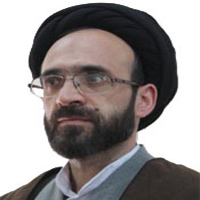Validation and Analysis of the Proposition "There is No Good in Extravagance, and There is no Extravagance in Goodness"
One of the propositions involved in identifying extravagance is the famous saying, "There is no good in extravagance, and there is no extravagance in goodness." The first part is unanimously agreed upon by all Jurisprudents, leaving no room for debate; so, the discussion in this paper focuses on the second part of the proposition. The objectives of this study include examining the validity of attributing this saying to the Prophet (PBUH) and the Apostolic Imams (AS), reinterpreting the concepts of "extravagance" and "goodness" for analyzing the proposition, and assessing its alignment with religious teachings. The findings , based on library research and a descriptive-analytical method, indicate that there is no clear source for this text in Hadith Collections, although its content is accepted. The proposition implies that if an action leads to proximity to Allah and became pure goodness, there cannot be extravagance—which signifies crossing divine boundaries—within that action. Excessive spending to preserve oneself or others is one of the instances of expansion in the concept of goodness", and in cases of doubt regarding the goodness of an action, caution should lead to refraining from the act.
-
Jurisprudential Approach to the Challenge of Apparent Contradictions in the Obligation of Commanding Good and Forbidding Evil
Manoochehr Khodarahmi *, Alborz Mohaghegh Garfami, Sayyid Ali Delbari
Journal of Jurisprudence and Ijtihad, -
Document and Inferential Analysis of Imam Reza's Narration on the Rational Argument for Caution
Sayyid Ali Delbari *
Journal of Islamic Philosophical Doctrines, -
Evaluation of the Traditions of Yūnus ibn Ẓibyān Ẓibyān in Al-Kāfī Based on Source Retrieving’s Method
Seyyed Soleyman Mousavi, Muhammadebrahim Roshanzamir *,
Hadith Studies, -
Analyzing the Influence of the Rulers on People's Religiosity with an Emphasis on the Story of Prophet Moses and Pharaoh
Seyed Abolqasem Hosseini Zeydi, Mohammadebrahim Roshan Zamir, Mohsen Kabiri*
Journal of Understanding Quran studies,


